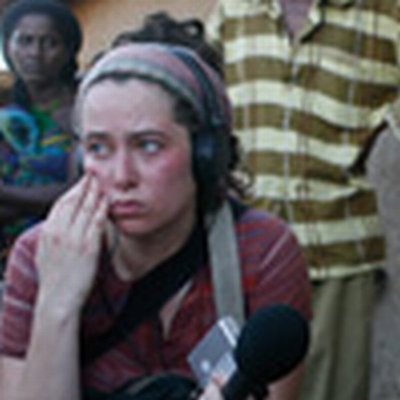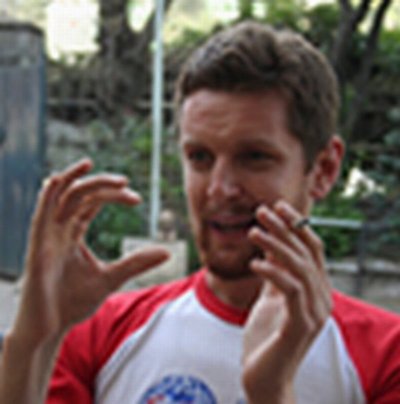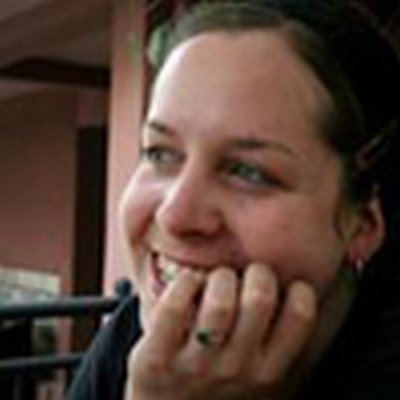They were three young people not long out of college. They wanted to be journalists and felt there weren’t enough in-depth international stories in American news media. But jobs were scarce, so they figured how to do independent reporting in places such as India, Cambodia and Ethiopia. Along the way, they helped invent a new, hybrid brand of journalism.
Jessica Partnow, Alex Stonehill and Sarah Stuteville have now brought the Common Language Project to the UW. This quarter, the project offers a practicum in entrepreneurial journalism while its three staff members continue reporting stories funded by a variety of sources. Their most recent work, a four-part series on immigration detention, will air on KUOW’s Morning Edition from Feb. 23 to 26.
The Common Language Project, or CLP, is also a finalist in the We Media Game Changer Awards, which recognize people and projects that inspire good changes through the media.
“We wanted to do international reporting,” said Stonehill, 28, who with Partnow, 29, and Stuteville, 30, launched the project in 2006. They have reported on sex workers attempting to unionize in Calcutta and water issues in Ethiopia and Kenya. They’ve visited Cambodia, reporting on a man who’d been a child soldier on both sides of the civil war and took it on himself to disarm the mines he had laid.
In 2009, Partnow, Stuteville and Stonehill did a series of stories, “Pakistan: Hearts and Minds,” funded by the Pulitzer Center on Crisis Reporting. They reported in Seattle and Karachi, showing the conflicts Pakistani Americans feel about having left their country and also their efforts to raise money to educate young Pakistanis. The stories were broadcast on KUOW and appeared in several publications, including The Seattle Times.
“We conceived of the CLP as a way to do journalism that underscores connections, common concerns and relatable experiences of people across cultures, borders and circumstances,” Stuteville wrote in an e-mail.
In each of the last two years, the project has received $15,000-$20,000 from the Pulitzer Center to fund reporting projects in East Africa and Pakistan. It’s also received $60,000 from the Foundation for Global Community to help cover two years of salaries and operational expenses.
At the UW, Partnow, Stonehill and Stuteville are part-time lecturers who teach the course and offer journalism workshops. Part of their salaries comes from alumni support of the Department of Communication.
Mondays and Wednesdays, the three run the practicum for 18 undergraduates. To make ends meet, however, they also have outside jobs. Stonehill works construction two days a week; Stuteville restores antiques and Partnow is office manager for Reel Grrls, a Seattle nonprofit that offers young women after-school training in media technology.
Stuteville, Partnow and Stonehill are like others who see future journalism supported by foundations and perhaps government funds, sort of like public radio and public television. “Unfortunately,” said Stonehill, “journalism is becoming less like a career in the traditional sense. There are starving journalists just like there are starving artists.”
Meanwhile, the practicum students like hands-on experience with the nuts and bolts of multimedia journalism. “We are able to work on projects for a real media outlet,” said class member Rachel Solomon. “I’ve never been so excited to go to class before.”
If all goes according to plan, the students’ work will be published by Next Door Media, a five-member group of neighborhood blogs in Seattle.
Stonehill, Partnow and Stuteville have committed to two years in the Department of Communication. “Our journalism students are gaining greatly from having working journalists in the building with them,” said Roger Simpson, a communication professor instrumental in bringing the project to the University.
“The CLP is the best model I’ve seen for how today’s young journalists need to approach the production of news,” said David Domke, department chairman. “In a word, they are entrepreneurial.”
For more information on the Common Language Project, including its stories and the reporting practicum, visit online here.


